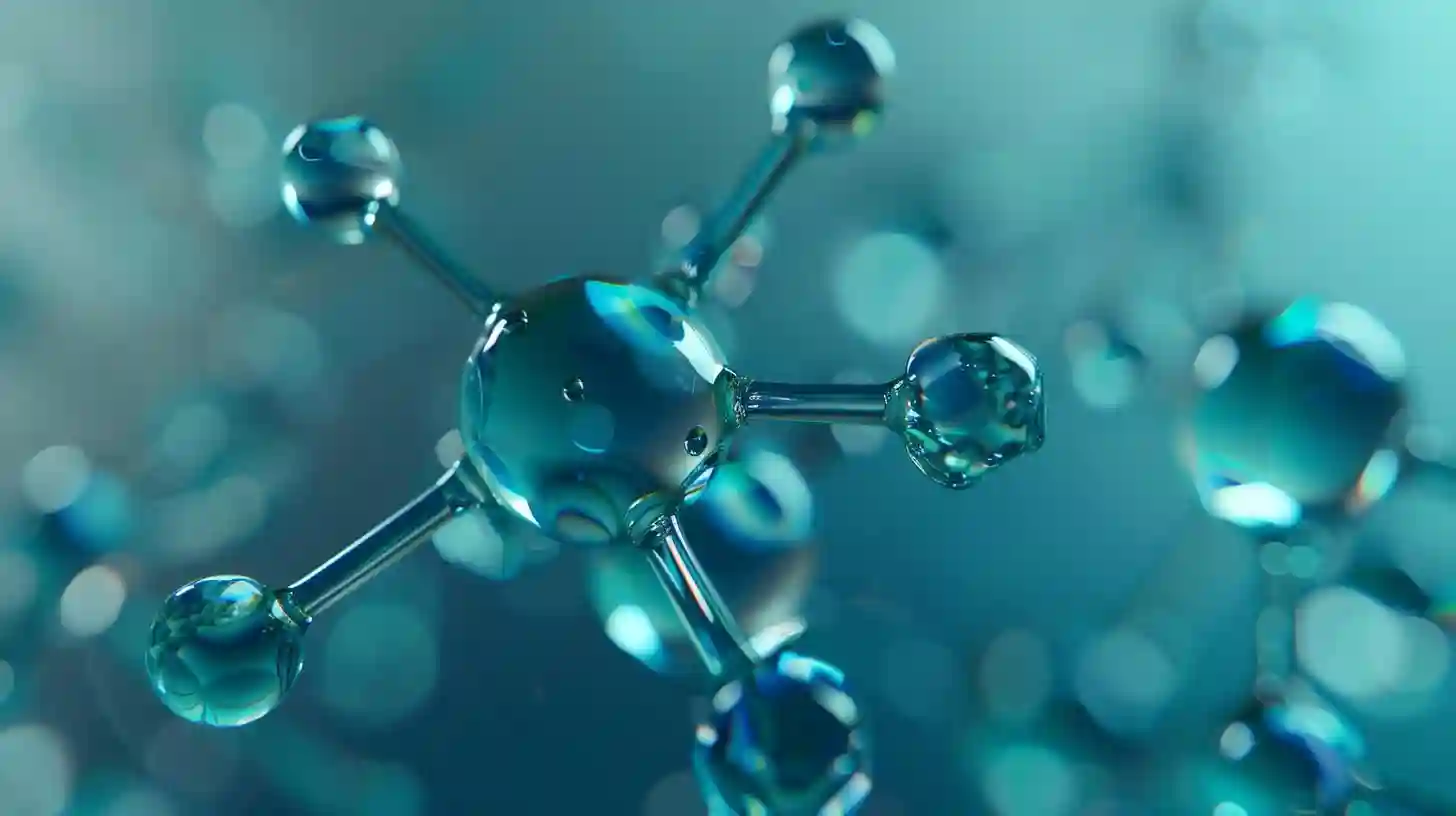
Water is a vital molecule necessary for life on Earth. Its chemical formula is H2O, which means that each water molecule consists of two hydrogen atoms bonded to one oxygen atom. This unique combination gives water special properties, making it a universal solvent, a key component of many chemical reactions and an essential medium for life.
One of the most remarkable features of water is its ability to dissolve many substances. This is due to its polar nature, which means that the oxygen atom has a slight negative charge and the hydrogen atoms have a slight positive charge. This polarity allows water molecules to attract and surround ions and other polar molecules, breaking them into smaller particles and dispersing them throughout the solution. This makes water an excellent solvent for a wide range of compounds, from salts and sugars to proteins and nucleic acids.
In addition to its properties as a solvent, water also participates in many chemical reactions. For example, water molecules can participate in acid-base reactions, where they can donate or accept protons depending on conditions. This makes water a key player in maintaining the pH balance of biological systems, ensuring that the internal environment remains stable and capable of supporting life. Water can also act as a reactant or product in many other chemical reactions, from hydrolysis reactions, which break down complex molecules into simpler components, to condensation reactions, which form larger molecules from smaller ones.
Another important role of water is its ability to regulate temperature. Water has a high specific heat capacity, meaning that it can absorb and release large amounts of heat without undergoing significant changes in temperature. This property is important for maintaining a stable temperature in both living organisms and the environment, since water can absorb heat from the environment through evaporation, cooling the environment, and release heat through condensation, warming the environment. This helps prevent sudden temperature fluctuations that can be harmful to living organisms and contributes to the overall regulation of the Earth's climate.
In addition, water is a key component of many biological processes. It plays a critical role in the structure and function of cells because it is a major component of the cytoplasm, the fluid that fills cells and allows the movement of molecules and organelles. Water is also involved in many metabolic reactions, serving as a medium for transporting nutrients and metabolic products within the body. In addition, water is needed to maintain blood volume and pressure, and to regulate body temperature through processes such as sweating and breathing.
Apart from its biological importance, water also plays an important role in shaping the Earth's surface. Water erosion, for example, is a major geological process that shapes landscapes by breaking down rocks and soil and transporting sediment to new locations. This process is responsible for the formation of river valleys, canyons and even entire mountain ranges over millions of years. Water also plays a critical role in rock weathering because it can dissolve minerals and break down rocks into smaller particles, aiding soil formation and nutrient cycling in the Earth's ecosystem.
The water molecule is a wonderful compound essential for life on Earth. Its unique properties as a solvent, a participant in chemical reactions, a temperature regulator and a key component of biological processes make it indispensable for the existence of living organisms. From the molecular level to the global scale, water plays a critical role in shaping the world we live in and maintaining the delicate balance of ecosystems. As we continue to study and appreciate the many aspects of the importance of water, it becomes increasingly clear that this simple molecule truly is the cornerstone of life as we know it.